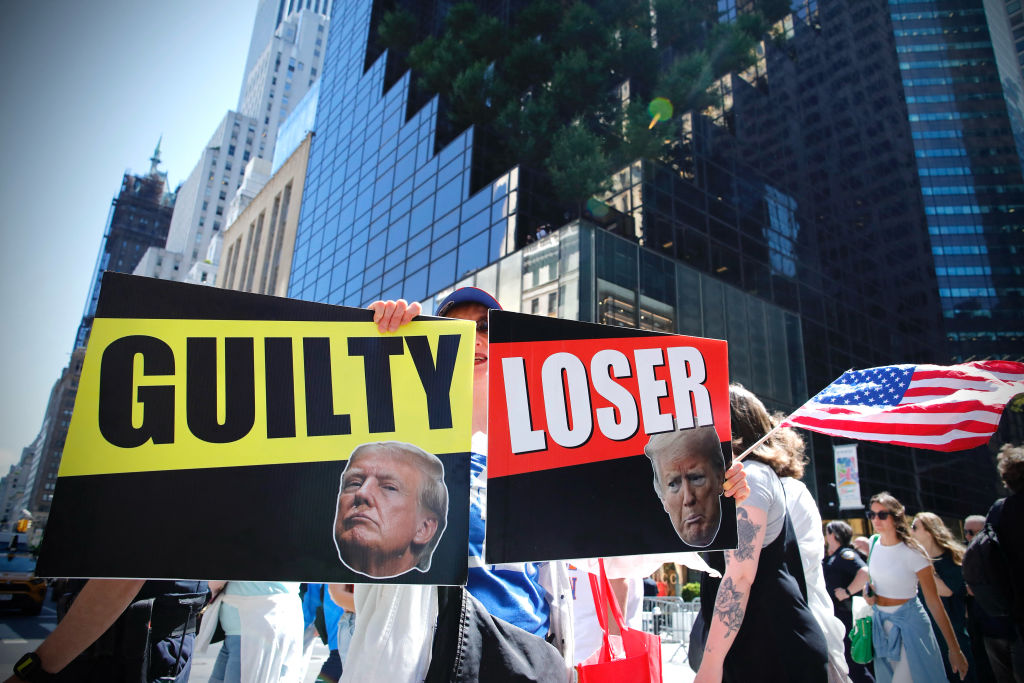On Thursday, former President Donald Trump was found guilty of all 34 counts against him in a New York “hush money” trial brought against him by Manhattan District Attorney Alvin Bragg. Trump, who also faces three other criminal cases related to election interference, the January 6 insurrection and mishandling classified documents, is now the first president in U.S. history to be convicted of felony crimes. What does this mean for Trump’s freedom, presidential campaign and more?
What were the charges against Trump?
Trump was convicted of 34 counts of falsifying business records for intentionally mislabeling payments made to adult film star Stormy Daniels to buy her silence about a sexual encounter she alleges happened between her and Trump in 2006. During Trump’s 2016 presidential campaign, Daniels was paid $130,000 by Michael Cohen, Trump’s lawyer and fixer, and reimbursed by Trump; the reimbursements were labeled as “legal expenses” on various documents to conceal the nature of the arrangement with Daniels. While falsifying records this way would usually be a misdemeanor offense, Bragg elevated them to felonies under New York law by connecting them to another crime: illegally attempting to sway the results of the 2016 presidential election in a scheme involving Trump, Cohen, National Inquirer publisher David Pecker and more to manipulate news coverage of Trump during the campaign. The jury’s verdict indicates they believed the DA’s case and rejected Trump’s defense that the payments were a legitimate legal expense and not primarily aimed at the 2016 election.
Will Trump go to jail, and when? Next steps in the case
Now that Trump has been convicted, he is scheduled for a sentencing hearing on July 11 by Judge Juan Merchan, who Trump frequently insulted during the criminal proceedings. Each count against Trump allows the judge to impose a fine and the option of up to four years of incarceration. Any prison sentence would likely be served concurrently, meaning he would be jailed for no more than four years. Experts differ on whether Trump will be sentenced to jail time. Some believe he will not be sent to prison because of his age and because other people convicted of similar crimes have avoided incarceration; he could be given probation or home confinement as an alternative to prison. However, criminal defense lawyer Ron Kuby recently told NBC News that “Judge Merchan is known for being a harsh sentencer when it comes to white-collar crimes committed by people who have wealth and privilege and power.” Regardless of the sentence, Trump will likely stay out of jail while he appeals the verdict, a process that will almost certainly go past the November election and could stretch out for years if his case goes to the Supreme Court.
Impact on the 2024 presidential race
Trump’s criminal conviction does not disqualify him from running for president, and he remains the presumptive Republican nominee. Trump will likely still be free to attend his formal nomination at the Republican National Convention, which will begin four days after his sentencing hearing. Trump’s supporters will probably continue to support him throughout his legal troubles. Still, some swing voters have indicated in past polls that they would reconsider or switch votes if Trump was convicted. While hoping that the conviction might sway voters, the Biden campaign has already emphasized that “there’s only one way to keep Donald Trump out of the Oval Office: At the ballot box,” while using the guilty verdict for fundraising.
There’s only one way to keep Donald Trump out of the Oval Office: At the ballot box.
Donate to our campaign today: https://t.co/aJXS9oti0a
— Joe Biden (@JoeBiden) May 30, 2024
While it may take months or even years to know what Trump’s final legal punishment will be, the more immediate impact of his conviction will be political. The months ahead will show if Trump’s conviction will sway voters and potentially change the outcome of a close presidential race.

